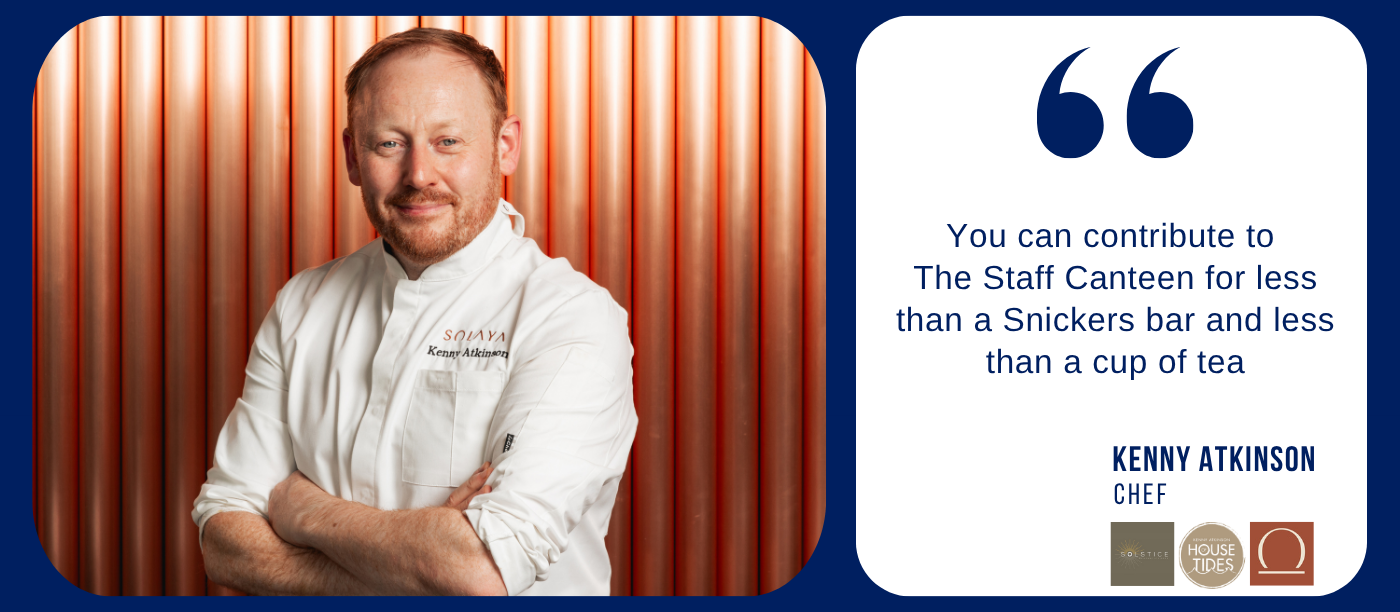The hospitality staffing crisis: 'It's not just hiring that's the issue, it's the retention that's the issue'

After officially opening The Standard hotel in 2019, the team was still going through the motions of the launch when, in March 2020, lockdown closed them down.
In 2019, The Standard had 380 members of staff across the hotel and its kitchens, restaurant and other facilities, with the expectation that at full capacity, they would need around 450 staff.
But when the hotel reopened in June 2020, only 150 staff returned.
This, The Standard Hotel's HR director, Steve Williams explained, was partially due to people finding other jobs during lockdown - and because of Brexit.
“One of the things the hospitality industry has relied on for so long has been the influx of cheap labour that comes in from Europe," he said.
But as Covid precipitated the European workers' exodus, the hotel had to adapt to find a new pool of staff.
Accounting for turnover, it has recruited approximately 220 new starters since reopening, 100 of whom have stayed, which Steve puts down to the ferocious competition among hospitality employers in the capital.
Steve said "It's not just hiring that's the issue, its the retention that's the issue, and it's the retention issue when you do get competitors opening up or putting up their pay rates that then attracts waiters, bar tenders, chefs, to move from your property to another kitchen for an extra 1 pound an hour or whatever the hike is. Would I call it a price war, I think it probably is."
One of the consequences of this is that many less experienced staff have been offered positions they aren't qualified to fill - in turn causing more turnover as people leave for better opportunies.
“It's been a bit of a perfect storm," he said. "There’s been many things happening that have all come to fruition over the last three or four months."
Work-Life Balance
One of the ways Steve and many other employers in hospitality have found to counter the staffing crisis has been to re-evaluate their working practices in order to create a positive, appealing work environment.
“People have woken up," he said. "Working 70 or 80 hours, that’s got to stop, and, I think employees will very quickly wake up

and move to companies that aren’t making them do that.”
Rather than relying on EU labour, Steve believes the industry has to look inwards for homegrown talent. To do this, the hospitality industry needs to undergo a 'rebranding' of sorts."
"The schemes have always been there, the apprenticeships have always been there, the college courses have always been there... That's all there and that's in place," he said.
"It's the branding that the industry does to schools and to colleges that really needs to change over the next few years to make people look and listen and say, 'you can actually have a good career in hotels or restaurants.'”
Now more than ever, he continued, there is a need for companies to differentiate themselves rather than giving the same basic benefit packages as everyone else - it is about creating an atmosphere in which staff feel comfortable and part of a unit.
"Culture is something The Standard particularly prides itself on," Steve said.
"You can truly be yourself at The Standard, and our incredibly diverse team is testament to this."
"Our open culture really resonates with team members, and is one of the most common comments new team members feed back on."
The community and almost family-like connection that the hospitality industry has always had - for better or for worse - is now being emphasised to make jobs more attractive.
"Loyalty and culture are going to be quite important moving forward, because we all pay the salaries that we pay... [and] people have now woken up to [the fact that] it's the environment that they're working in that is really important." he said.
Eu Labour
A reliance on cheap labour is one thing, but to Steve's mind the industry should still have access to EU workers to make up staff numbers, especially in the capital.
“I just hope that the government have or put in place some kind of visa system that includes hospitality," he said, one "that’s actually been well thought out and meets the needs of those businesses and doesn’t open the floodgates to employing cheaper labour.”

For 17 years, The Staff Canteen has been the meeting place for chefs and hospitality professionals—your stories, your skills, your space.
Every recipe, every video, every news update exists because this community makes it possible.
We’ll never hide content behind a paywall, but we need your help to keep it free.
If The Staff Canteen has inspired you, informed you, or simply made you smile, chip in £3—less than a coffee—to keep this space thriving.
Together, we keep the industry connected. Together, we move forward.














